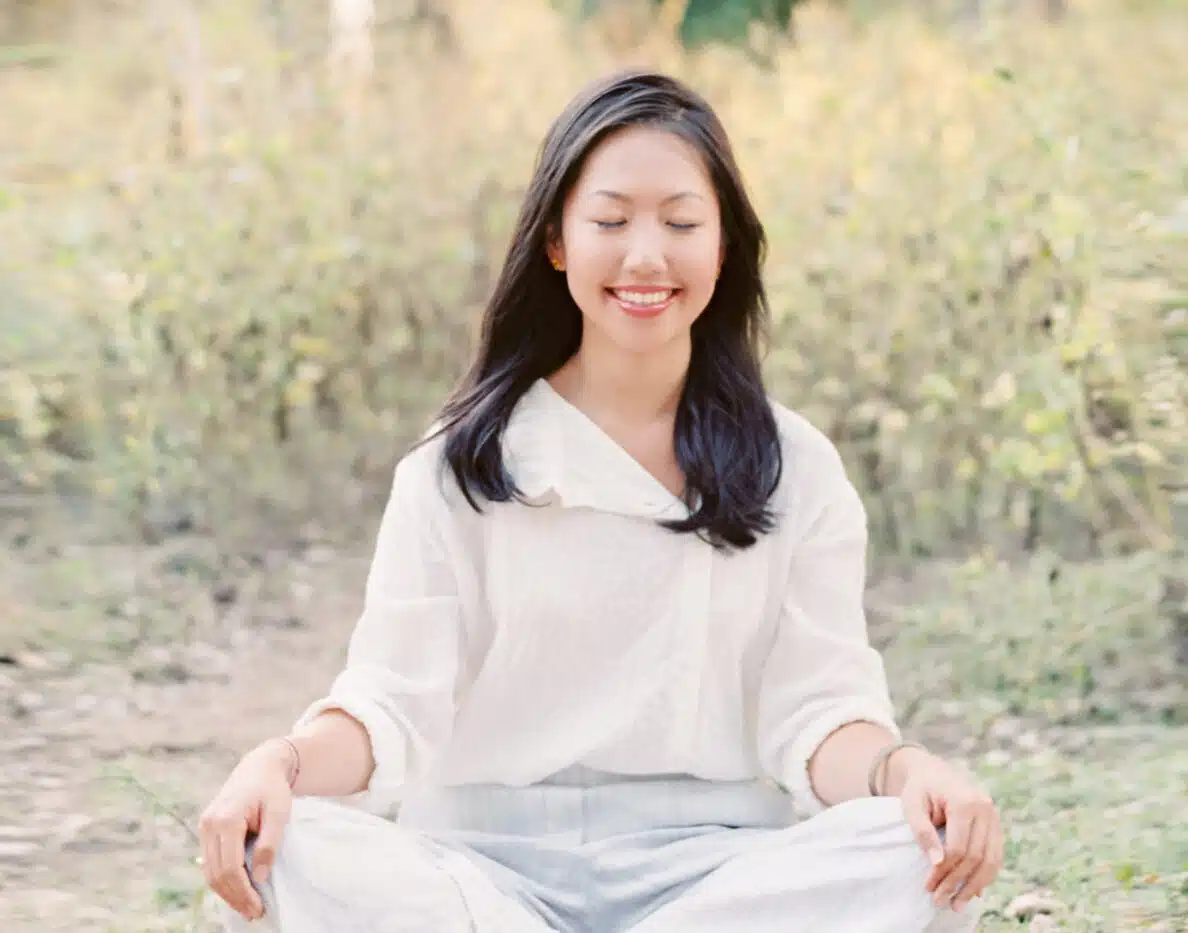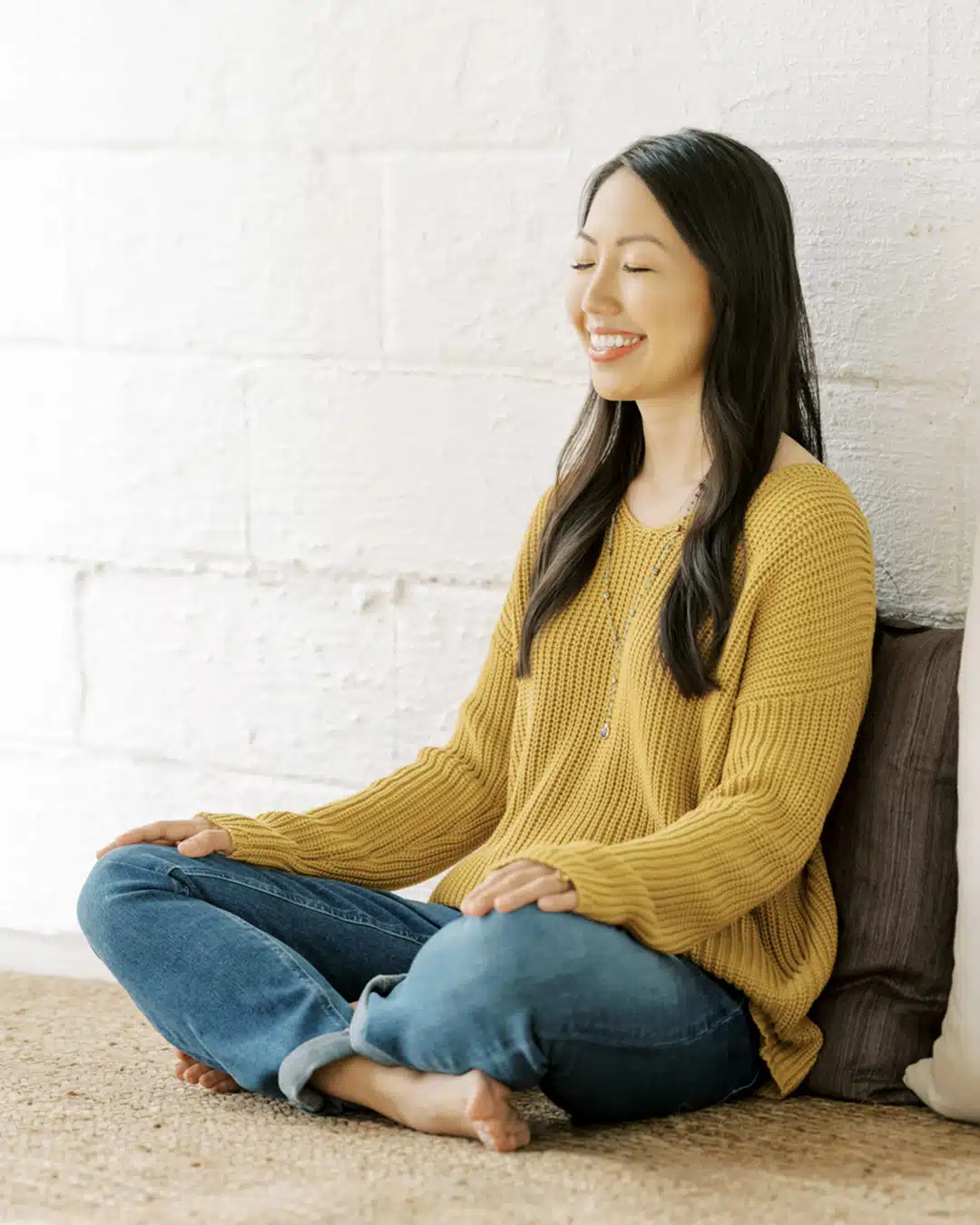When you’ve already got a lot on your plate, the slightest change or interruption can send the mind into an anxious episode. Stress manifests as anxiety for a large percentage of the population, and once the brain starts on an anxious loop it can be very hard to stop it.
Fortunately, meditation has proven to help slow and prevent anxiety and stress in numerous studies. In this post, we’ll cover how to calm the anxious mind with 7 tips about meditation for stress and anxiety.

Avoid Crisis Meditation
The first step is to get out of the habit of meditating only once you’re already in a stressed or anxious state. Just like waiting to fix a boat until it’s already sinking, this kind of ‘crisis meditation’ doesn’t do much for our overall resilience and experience of life.
Though we may be able to distract ourselves temporarily or change our physiological state with deep breaths, we cannot effectively release stress from the body or build long-term resilience and capacity for stress when we only meditate after an occasional crisis.
The most effective meditation practice is a consistent one that is designed for calming the anxious mind. Though many styles of meditation promise to lower stress, there are not very many that allow the mind and body to rest deeply. If you want to calm stress and anxiety, it’s important to pick a meditation style that doesn’t require you to focus and concentrate.
Don’t Try to Stop Thinking
Most forms of meditation require you to focus on not thinking, or focus on your breath, body, or a single idea to the exclusion of all other thoughts. When our minds are anxious and incessantly thinking, attempting to force silence can cause more stress. We wonder why we’re still thinking, we worry that we’re meditating incorrectly or that we’re bad meditators. Then, the stress has increased without any outlet of rest.
Trying to stop thinking is like not thinking about pink elephants. As soon as you focus on it, you’re thinking. The mind creates thoughts to seek greater homeostasis and happiness, so until the mind feels safe, happy, and without stress in the entire physiology, it will not simply ‘stop thinking.’
It could fall asleep, slow down, or go into a dreamlike state, but without resting the body deeply enough (in a waking, hypometabolic state), the stress memories embedded in our cells will still be there to agitate our anxiety when we finish our meditation. If you’re interested in calming your anxious mind, you’ll need to choose a technique that is effortless and easy, as well as deeply restful to the body to allow stress memories to physically leave the cells.

Start your Meditation Journey Today
ATTEND A FREE INTRO TALKPractice A Technique that Addresses the Root Cause of Anxiety and Stress
Vedic Meditation is designed to calm your anxious mind in that it uses a special kind of mantra to effortlessly lead the body beyond thought into a place of stillness and transcendence. It is effortless, thinking is allowed, and even when we are thinking alongside the mental sound of our mantra, we are still allowing the body to rest 5x more deeply than sleep.
This kind of rest while the mind is awake allows stress to leave the body, like cleaning out old stress memories. This means that even when we feel we did not have a ‘deep’ meditation, we were still releasing stress and building our stress resilience as stress memories were released in the form of thoughts.
Address Both Forms of Stress
When we practice Vedic Meditation, we’re not only allowing the body to rest deeply and guiding the mind effortlessly into a quieter and quieter state. We’re also addressing the root cause of stress.
It isn’t the events in our lives that cause stress. It’s not even our thoughts that cause stress. Our reactions to external events are a direct correlation to the level of stress chemistry stored in our bodies. When our bodies are full of stress memories, any number of benign external circumstances can set us off.
Without addressing this root cause of stress buildup in the body, we’ll continue to add on stress and lower our capacity, until we feel like a big ball of anxiety or even manifest physical ailments.
Vedic Meditation addresses the root cause and the reaction to stress in the moment by helping us build capacity and adaptability through deep rest and transcending thought.
Build Adaptability and Resilience
In the Vedic Worldview, we call the new capacity to handle changes in expectation your adaptation energy. When you are not meditating, your adaptation energy is very limited and you’re likely to react with anxiety at any number of ordinary stimuli. When you practice meditating twice a day for twenty minutes, you’ll build a little more adaptation energy every day. Eventually, the things that used to stress you out will be hardly noticeable at all.

Learn with a Qualified Instructor
Because Vedic Meditation is a totally unique technique that can help your body transform over time, it’s important to learn with a qualified Vedic Meditation instructor. They will be able to teach you how to calm your mind when anxious by using the special Bija mantra they assign to you. They will also be able to explain how stress works and how the mantra technique effortlessly calms the mind and body.
While you establish your twice-daily practice, they will be available to ask questions and ensure you’re practicing correctly. If you find you are releasing a great deal of stress at once, which can happen at the beginning of a Vedic Meditation journey, then they will be able to guide you and ease the stress release alongside you.
Develop a Consistent Practice
The most important factor in calming an anxious mind with Vedic Meditation is being absolutely consistent every morning and afternoon with your twenty-minute practice.
When we are consistent with a non-negotiable meditation habit, we are able to manage anxiety and release the stress of the day as well as release past stress from the body that is at the root of our anxiety and reactions. It helps to meditate first thing in the morning after waking up and splashing our face or brushing our teeth, and then scheduling our meditation time in the afternoon before the evening’s activities begin.
Learn to Meditate
Schedule an Intro Talk with me to learn more about Vedic Meditation and sign up for the Learn to Meditate Course. You’ll start a journey with a simple, effortless, lifelong practice that will help you to lower anxiety every day.






